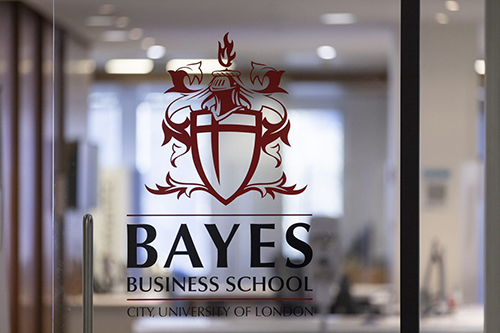Careers-focused module boosts BA English students’ employability at City.
By Eve Lacroix (Senior Communications Officer), Published
“I chose my degree out of a love for the subject,” said 20-year-old Anaya Tank, a first-year BA English student. “Like many others, I didn’t know what I could do post-degree. The ‘Working with Words’ module reassured me that I have options to not only have a good career, but one that is fulfilling and enjoyable too.”

Anaya was part of the first cohort of BA English students at City, University of London taking part in the ‘Working with Words’ module, which launched in September 2022.
The module was co-created by Holly Tonks, Lecturer in Publishing, who worked in industry for leading publishing houses Penguin Random House and Simon & Schuster, and Lucy Ayliffe, Careers Consultant who has previously worked in the arts.
Holly taught the first half of the module, which involved giving the students a core understanding of studying English like how to research for and reference in essays. She also set tasks such as how to approach writing an editorial brief similar to those given to columnists and feature writers. “I wanted to give the students a sense of context to their studies,” she said.
Lucy co-delivered the programme, teaching students basic employability skills including writing cover letters and CVs, but also invited students to think deeply about which jobs matched their skillsets and personal values.
She noticed that many of her students had to fight with their parents to study English and wanted to instil an energy of curiosity and exploration within the students. Instead of asking themselves what they can do with their careers, Lucy encouraged students to think about what they want to do with their careers.
“Careers are long. More and more often we see people having ‘happenstance’ careers, or three or four careers within one,” she said. “I would like to give our students the confidence to start exploring this earlier in their careers by getting involved in everything that interests them.”
44 per cent of City’s undergraduate students from the 2021/22 cohort were first-generation university students. For these students, higher education offers them the chance to consider careers that they may not have seen their friends and family pursue.
The module also hosted a panel event followed by networking which allowed students to mingle with professionals who had studied English. For 18-year-old commuter student Annie Maxted, the networking event was her highlight.

“After the module, I felt less restricted,” she said. “At the networking event, I became interested in teaching English as a foreign language and also hope to get work experience in journalism.”
23-year-old Beth Ratcliffe has worked in cafes, shops, supermarkets and hospitals since she was 14. She would like to pursue a career in publishing. Through the 'Working with Words' module, she gained insight into how she could apply her current work experience to her future job applications.
"Through the module, I was able to see how I could apply my current work experience towards a career more associated with my English degree," she said. "The classes helped show me how the skills I already have are transferable to other roles, like being able to tailor my communication to different kinds of customers."
The module was designed as part of the City’s sector-leading Career Activation Programme which has embedded careers-focused modules and work experience across each undergraduate programme to boost students’ employability.
“Research shows that the combination of career focus education and professional experience help graduates stand out when applying for graduate jobs which is why my team developed the Career Activation Programme,” said Gemma Kenyon, Director of Careers and Employability. “The programme is so important as it levels the playing field for students.”



